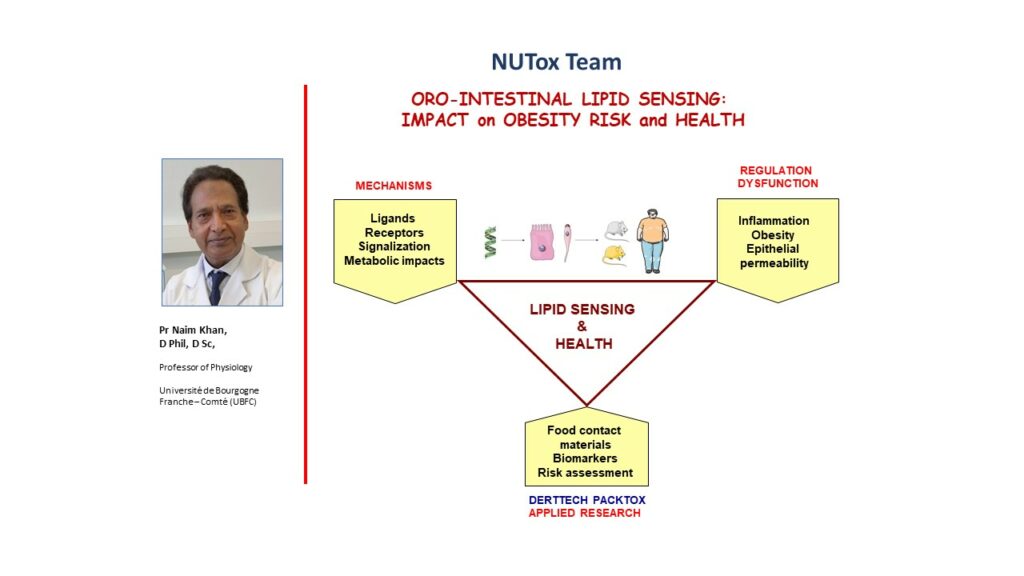Themes
Team Composition
Publications
Skills
Links
Sensing of dietary lipids along the oro-intestinal tract: effects of food contaminants and impact on feeding behavior and health
Long chain fatty acid (LCFA) receptors are membrane proteins including scavenger receptors such as CD36 and G-protein coupled receptors (GPCR) as GPR120/FFAR4. Our team has played a pioneer role in the demonstration that CD36 protein, expressed in taste buds and enterocytes, plays a fundamental role in the oro-intestinal detection of dietary lipids and, hence, in lipid food choice. We have demonstrated that the sensitivity of this oro-intestinal lipid sensing system is under the control of LCFAs themselves. There seems to exist a “functional continuum” along the oro-intestinal axis responsible for the modulation, in real time, of ingestion, digestion, absorption and metabolic fate of dietary lipids, adapting them to specific needs of the organism. It is likely that the effectiveness of this lipid sensing system, which requires a permanent dialogue with the central nervous system, contributes to modulate the eating behavior. The main thrust of our team is to explore the implication of oro-intestinal lipid sensing in health and disease (obesity), and to assess how contaminants of endocrine disruptor family interfere with its physiological regulation. Our team has shown that there might exist a 6th taste quality, the taste for fat which is altered in obesity. We have recently submitted 2 patents (WO2019229005 and WO2019228994) of innovation in Europe/USA wherein we demonstrate that targeting tongue (TT) lipid sensors by newly synthesized agonists may trigger satiation to fat-rich food and a decrease in the degree of obesity.

